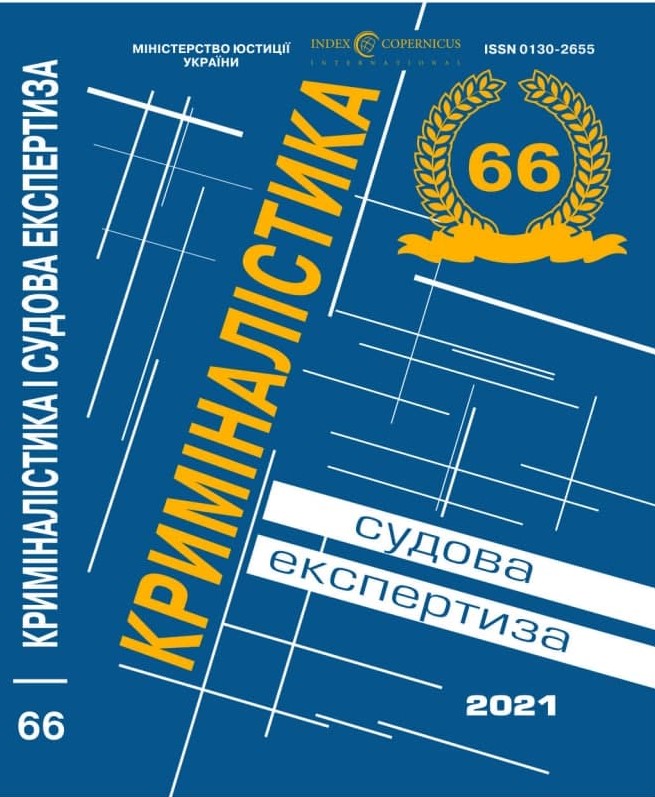DOI: https://doi.org/10.33994/kndise.2021.66.20
I. Kohutych
The article is devoted to the study of certain tactical aspects of the he prosecutor’s participation in the conclusion of an agreement on the confession of guilt by the accused. It is concluded that it is necessary to develop a system of forensic recommendations regarding the provision of this direction of the prosecutor’s activity in court proceedings.
It is stated that the institution of criminal procedure has appeared in Ukraine based on agreements, that is, a mechanism with separate contractual (compromise) elements during the resolution of criminal legal conflicts, which belongs to the so-called special orders of criminal proceedings.
It is noted that, in contrast to the sufficient attention of scientists to the issues of procedural regulation of criminal proceedings based on agreements, the tactical aspects of the activities of the prosecutor almost get out of sight of scientific research, which is in no way consistent with modern challenges of combating crime.
It has been established that the activities of the prosecutor to conclude an agreement on the confession of guilt by the accused and his/her judicial approval are cognitive and organizationally diverse, requiring appropriate tactical support (provision). This support will be a new direction of tactical and forensic support of the so-called compromise procedures in criminal proceedings. It should contain recommendations, at least regarding localization of an unproductive conflict between the prosecution and the accused, as well as unpredictable compromises between other participants in criminal proceedings. It should contain recommendations the availability of adequate ways to convince the accused of the futility of his/her opposition to the prosecutor and the court and the need to cooperate with them based on feedback, taking into account the specifics of professional defense and a situational analysis of one or another variant of defense tactics.
In the context of the prosecutor’s activities to conclude an agreement on the plea of the accused, the most relevant is the so-called negotiation tactics. In the mainstream of the analyzed subject, it would be more expedient to call it the tactics of prosecutorial persuasion and ensuring compromise procedures in the criminal process. Its constituent elements are a system of recommendations regarding the organizational, informational and resource-personnel support of the prosecutor’s activities to conclude an agreement on the plea of the accused in order to
a) make it impossible for the relevant participants in the criminal process to formally treat their duties;
b) prevent unpredictable compromises between the defense and the victim, as well as prosecution witnesses;
c) promote exclusively objective media coverage of the real state of affairs (in conditions of journalistic interest in a specific compromise procedure). At least, this will already become the basis for the effective use of tactics of creating conditions for the preparation and direct conclusion of an agreement on the plea of the accused.

